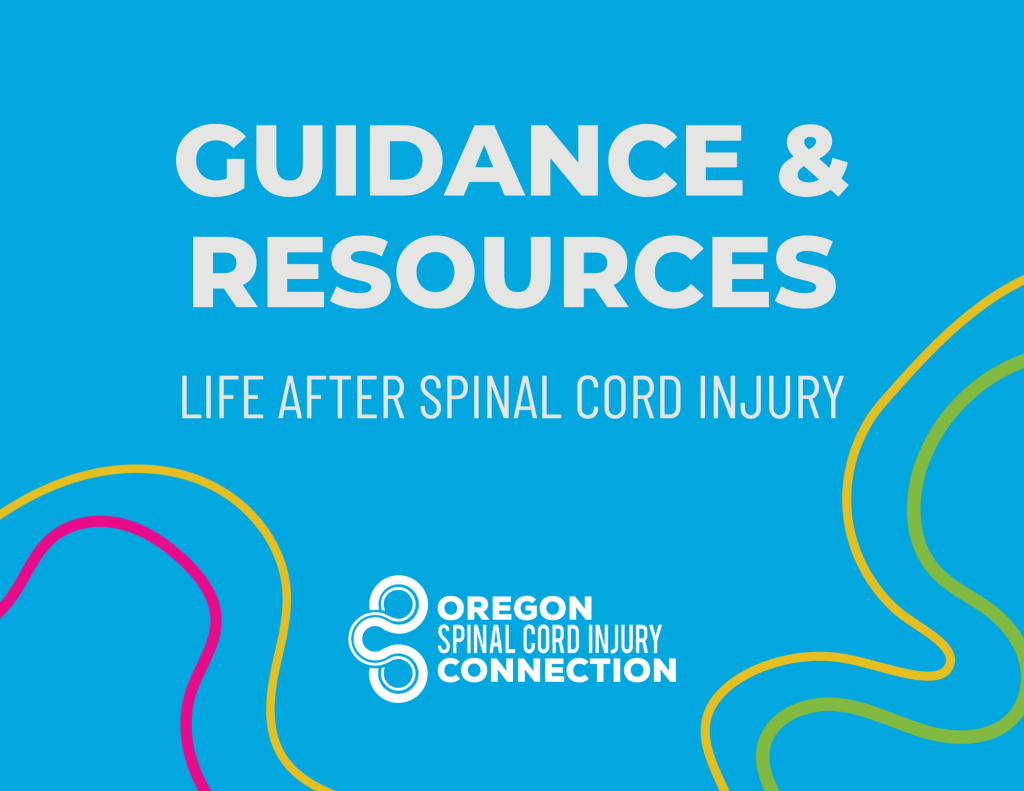Community Health Workers
Guidance & Support Through Spinal Cord Injury
If you are newly injured or need help navigating your spinal cord injury, connect with a Community Health Worker.
We can help you to find resources, ask the right questions, and get connected to others in the spinal cord injury community.
OSCI Guidance & Resources supports you on your journey after a spinal cord injury (SCI). Although life after SCI brings challenges, you are not alone. This guide offers information, support, and connections to help you navigate your path confidently. Whether you’re newly injured, a caregiver, or part of the SCI community, we aim to empower you with the knowledge and resources to build a fulfilling, independent, and connected life.
This guide is a living resource, regularly updated to reflect new information, resources, and community insights.
What is a community health worker?
A Community Health Worker (CHW) is more than a healthcare professional—they connect deeply with their community and its unique needs. By bridging individuals, healthcare, and social services, CHWs help people access essential resources. Moreover, through outreach, education, counseling, support, and advocacy, they empower individuals and strengthen the community by boosting health knowledge and promoting self-sufficiency.
How does a community health worker help after a spinal cord injury?
After a traumatic spinal cord injury (SCI), social support becomes essential. Because trauma deeply affects the mind, heart, and body, trusting others can feel difficult. Fortunately, a Community Health Worker (CHW) with lived SCI experience offers emotional support through empathy, empowerment, trust, and care.
Community Health Workers
CHWs not only provide emotional support but also empower individuals to manage their own care. By fostering positive coping skills and healthy habits, they help people thrive. Additionally, with a CHW’s guidance, individuals connect to the Oregon SCI community, where new friendships lead to recreation, education, employment, housing, and peer support.
Vital Links
CHWs serve as vital links between individuals and healthcare systems, connecting people to crucial resources. Furthermore, those supported by CHWs and the OSCI community face fewer serious health issues and rehospitalizations. This personalized advocacy speeds recovery during the first year, helping individuals regain independence and build a positive, high-quality life.
Who are OSCI community health workers?
An Oregon Spinal Cord Injury Connection (OSCI) community health worker is someone thriving after a spinal cord injury and serves as a trusted link to the OSCI community. With strong coping skills, self-awareness, and community involvement, they guide others on their journey. By sharing their lived experience, they empower newly injured individuals to pursue full, active lives. In addition, they offer support in managing secondary health issues, community reintegration, and peer mentorship.
How are CHWs and peer mentors the same but different?
- Same person: a peer mentor and CHW can be the same community member, namely a person with an SCI who is thriving after their injury and who is committed to helping others.
- Training is different: CHW training is 90 hours, is health focused, and completes continued education to remain certified, whereas most peer mentor training is 4-8 hours, is not necessarily health focused, and doesn’t require ongoing continued education or oversight.
- CHW services are coordinated and integrated with healthcare teams and social services case managers.
- CHWs must be certified by and registered with the Oregon Health Authority Traditional Health Worker Commission
- CHWs services are reimbursable by Medicaid, and can be self-employed or employed by a health system, clinic, or community-based organization.
- CHW are a central strategy adopted by Oregon Health Authority to achieve the triple aim (reduced costs, improved health outcomes, improved patient experience).
CHW Core Practices & Values
- strives to make life better for others who are living with spinal cord injury and their families.
- has a POSITIVE ATTITUDE with strong interpersonal skills
- has both an optimistic and realistic outlook
- has TIME to connect with others
- has KNOWLEDGE and WILLINGNESS TO LEARN more about important topics about living with spinal cord injury or caregiving
- is able to LISTEN WELL, be present, and share personal experiences and advice when appropriate
- has extensive LIVED EXPERIENCE with a spinal cord injury
How does the OSCI CHW Program work?
Qualified individuals with SCI train as Community Health Workers (CHWs) to support others on their recovery journey. Through coaching, CHWs reinforce health education, promote independence, and offer emotional support. They also connect individuals to the OSCI network and community activities. In addition, CHWs raise awareness among healthcare providers about secondary health risks and prevention strategies. As a result, the CHW Program drives health, connection, and empowerment. Oregon Spinal Cord Injury Connection (OSCI) received grants from the Craig H. Neilsen Foundation in 2018 and 2020 to develop this program for—and by—people living with SCI.



